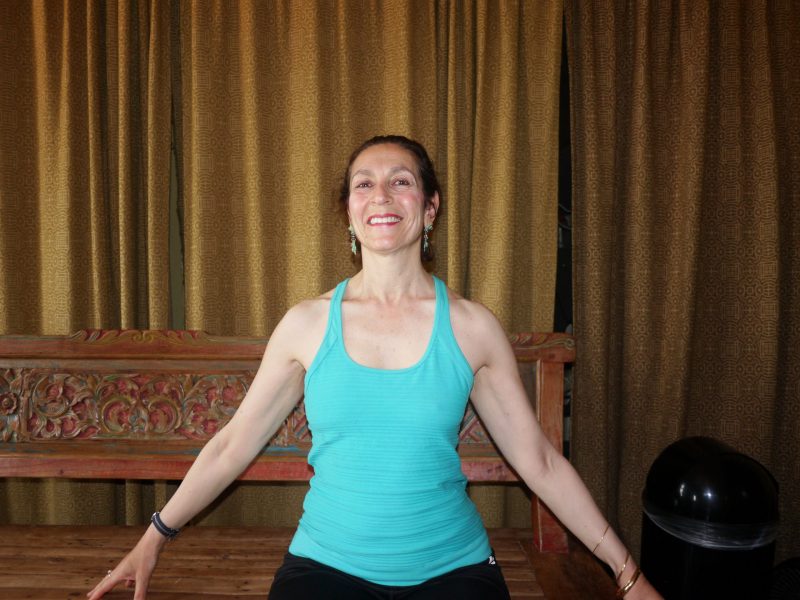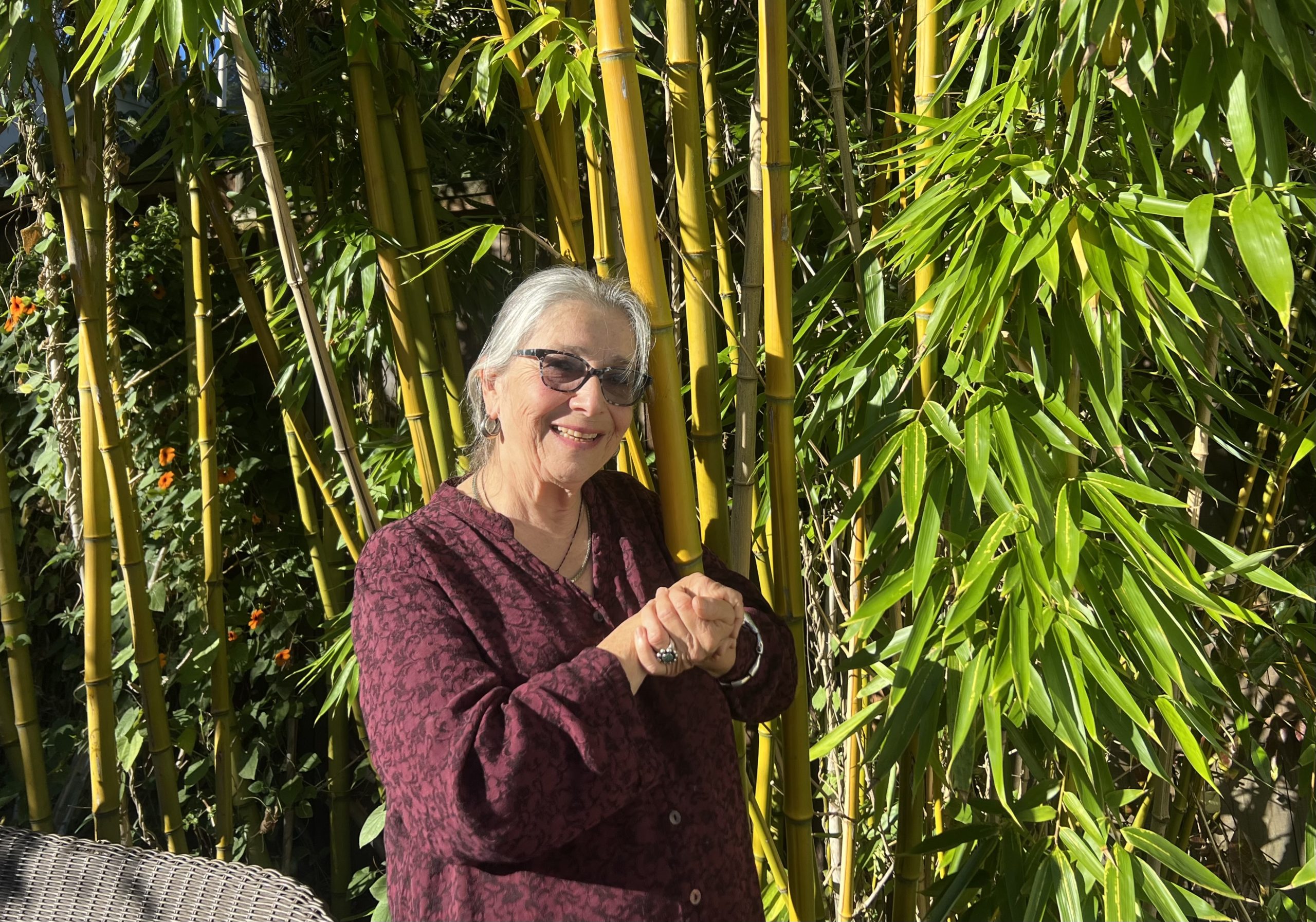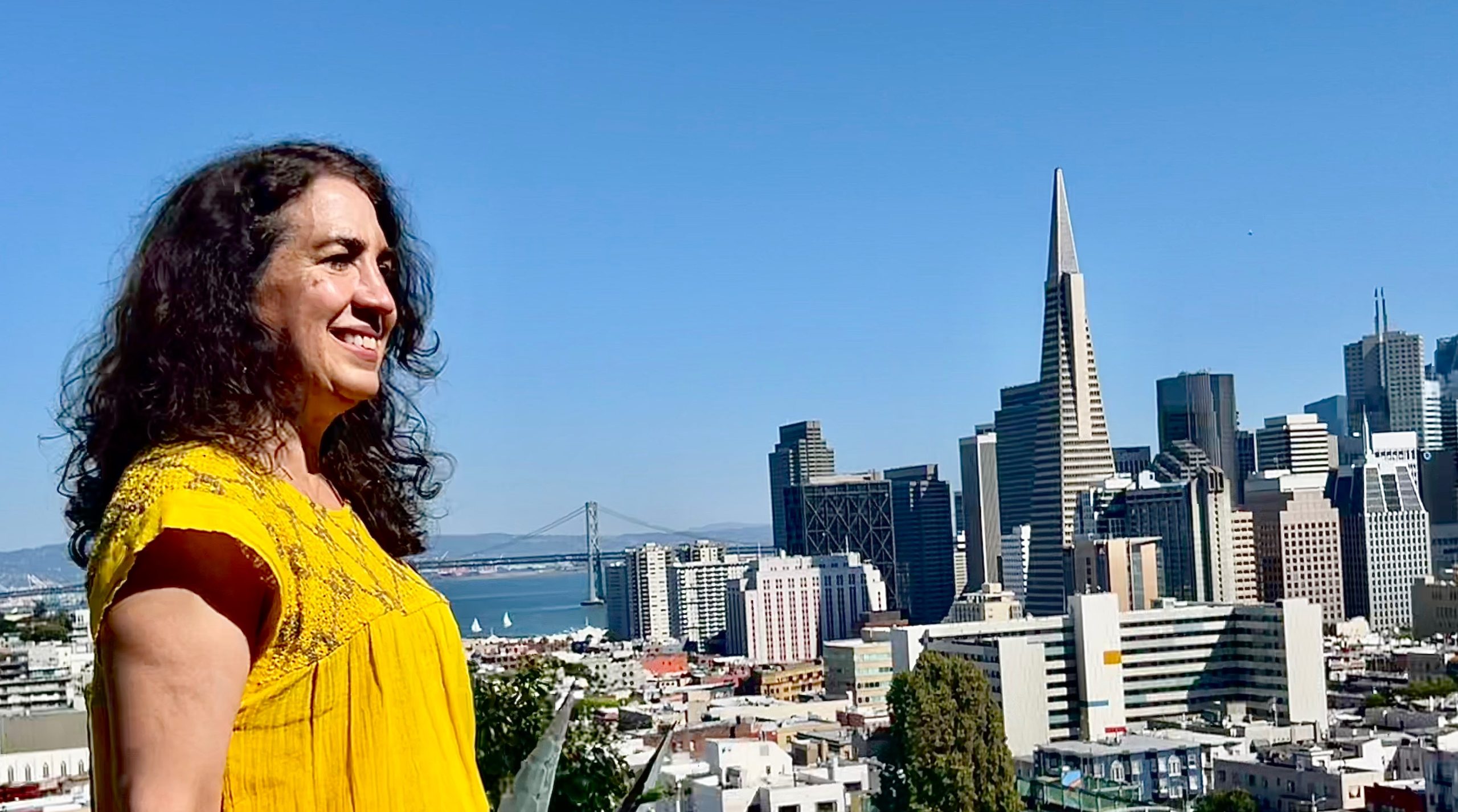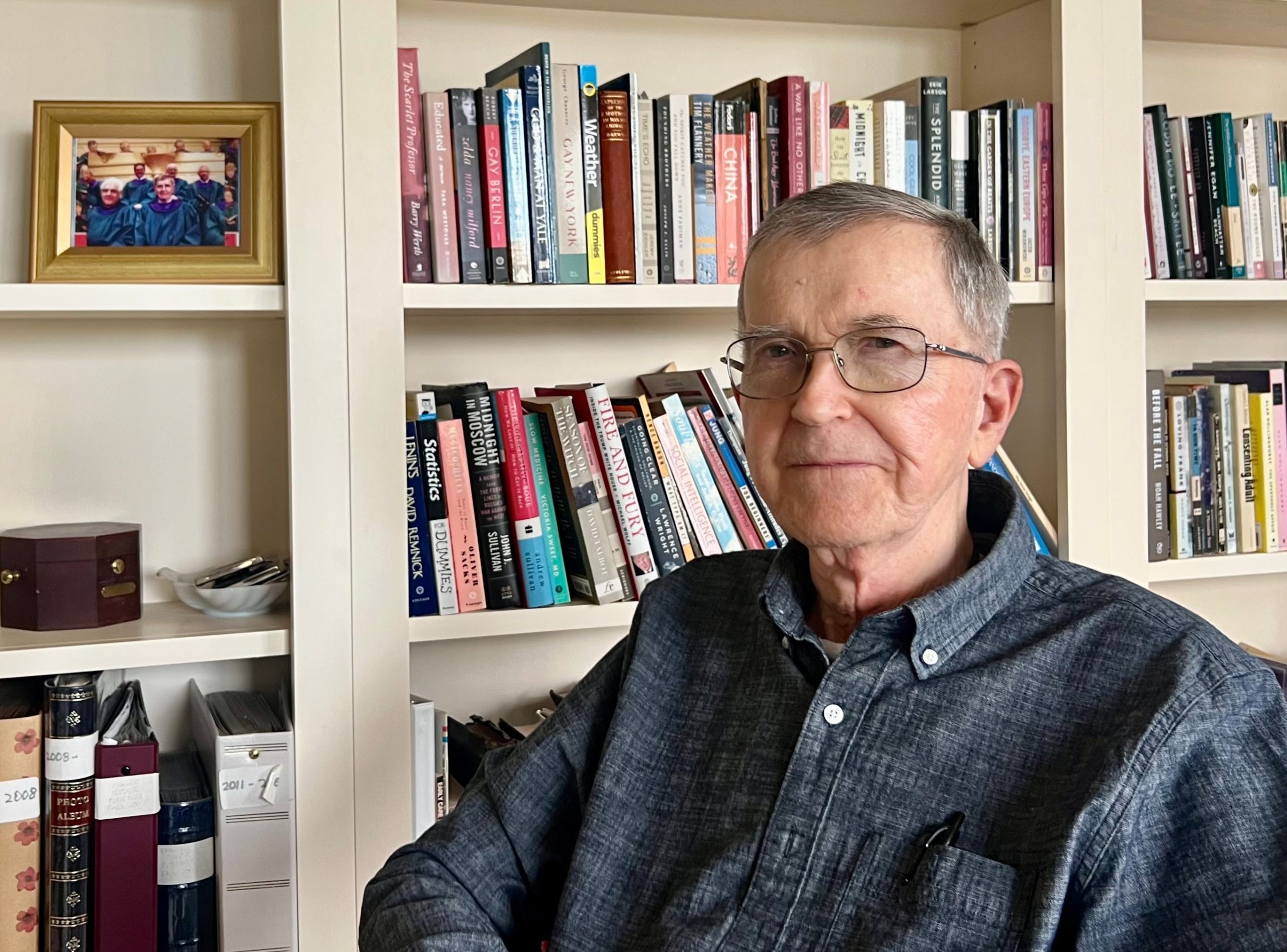Dance professional uses light touch, eye contact and dialogue to guide seniors and those with disabilities through yoga movements
When Dina Lisha visited her mother in her board and care home, she was horrified to see how withdrawn and depressed the residents were. So, she went in the day room, turned on some music and encouraged the residents in simple movements.
“It was astonishing to see their dim eyes come to life – responding, smiling, awakening – and only after 20 minutes!” said Lisha.
With all her dance training behind her, along with an extensive spiritual practice, she formulated an idea: becoming a professional chair yoga and dance teacher for special populations. What sealed the deal was taking a dance class for people with Parkinson’s disease at the Contemporary Jewish Museum. “At 55, I experienced a revelation, and that was to bring healing and joy to elders through movement by teaching classes to low- and high-functioning adults,” she said.
So, after a few years of waiting because of lack of funds for the 200-hour yoga teacher training program, Yoga Tree Works in San Francisco offered Lisha a scholarship. She completed her training in 2017, along with an online dance course for people with Parkinson’s.
Before the pandemic, she taught chair yoga and dance at the Institute on Aging. “I was teaching people in wheelchairs, with dementia, Parkinson’s, and with other neurological issues.” She was just hired at the Shanti Project in the Tenderloin when the pandemic shut down most in-person activities.
Getting students focused
Lisha said the way she communicates with challenged students is as important as the movements she guides them through. “Anyone can throw a ball,” she said, “but to engage through connection, eye contact and dialogue such as, ‘Joe, are you ready to catch the ball?’ or ‘Henrietta, you’re wearing such a pretty dress,’ brings people into a more focused awareness.”
Eye contact helped warm them up to the exercises, as did touching each one lightly, she said. Some were so lacking in affection, “they didn’t want to let me go.”
“Maybe the students can’t hold a conversation, but they get pleasure from music, which, along with movement, has the ability to change the brain.”
Dina Lisha
And she encouraged them to vocalize along with the movements. “I asked them to make sounds like “Ah-h-h-h-h-h” and “E-e-e-e-e-e”, which expands the energy field,” she said. “Maybe the students can’t hold a conversation, but they respond to music, which, along with movement, has the ability to change the brain and improve one’s emotional well-being”
Now, at 66, she is waiting for her assignment to teach a class of seniors in the Inner Sunset district. Hopefully, the surge in the delta variant of the Covid virus won’t hold that up.
Still, she’s used adjusting to life’s challenges. She was a young girl in 1961 when her Jewish family fled persecution under Egypt’s President Nasser. Her family lived in France for a year, before being sponsored by a relative and moving to America when Lisha was seven.

She also learned to weather change, she said, through “years of a million-and-one careers,” working in Barcelona, Oregon, California, and in other countries. Her jobs included legal secretary, tour director, ESL instructor, pre-school teacher, crafts boutique clerk and employment specialist.
What didn’t change was her spiritual practice, guided by a collection of teachers. “Gangaji’s compassion and pureness deeply moved me; Ram Dass deepened my meditation practice; Stephen Levine helped me in letting go and allowing/accepting all of me, not just part of me,” Lisha said.
Betrayed by the knees
She also studies acting and performs with Drama with Friends, a free, online Reader’s theater group.
“Even though I studied the Meisner acting technique for five years. I’m not any good at it, but I love performing and interacting with other actors,” she said. “I want to learn from others, challenge myself, but most of all – have fun!”
Her dream was to become a professional dancer. She majored in dance at San Francisco State University, getting the technical and academic background, while training at the now defunct San Francisco Dance Theater. “My foundation was in ballet, but I wanted modern,” she said, “so when I graduated college in 1977, I went to study with Martha Graham in New York City.”
But her own body became a barrier. “I overworked my knees. I became too injured to continue with Graham’s teachings. At that point I just wanted to forget dancing so I could walk and stand without pain.”
Returning to San Francisco in the late ’70s, Lisha became a legal secretary. She worked for five years for the San Francisco City Attorney’s office, then at the District Attorney’s office under Joseph Freitas Jr., who tried but failed to convict against Dan White’s Twinkie defense. “Those were tumultuous times, through the Jonestown murders and the assassination of Mayor George Moscone and Supervisor Harvey Milk,” she said.
Needing a break, she went on vacation to Cabo San Lucas. There, she met some “wonderful folks from Seattle, and talking it over with a friend who was also a spiritual guide, I decided that was the place for me,” she said.
While freelancing as a legal secretary, she began directing tours for the People to People program of the Ambassadors Group, an educational travel organization. “I had already lived in Paris for a year when I was 18 and I wanted to travel with a purpose, which this job provided.”
Travel and spirit
It was a job she loved. Her international trips included China, Australia, and New Zealand. “I accompanied professionals – teachers, architects, businesspeople – to different countries and set up introductions to their counterparts in those countries so they could learn from each other.”
Her domestic tours were solely leisure travel to places like the Pacific Northwest, the Canadian Rockies, and the national parks. She made all the hotel, restaurant, and event reservations.
After seven years in Seattle, she began looking for a place she could deepen her spiritual practice. She chose Ashland, Ore., because of “its theater community, the area’s natural beauty, and the huge spiritual community,” she said. “I worked in a crafts boutique, which gave me time to focus on learning, also from Buddhists Pema Chodron and Eckhart Tolle.”
Lisha moved back to San Francisco to train as an English as a Second Language instructor, then went off to Barcelona. But by the end of a year, she felt a pull to come back home to the city, where her mother and two older brothers lived. She had reached her “enoughness” traveling abroad, she said.
She taught ESL at the Center for English Studies in the Financial District. When it closed, she became an employment specialist at the Jewish Vocational Services. After three years, she was laid off due to budget cuts.
At this point, in 2006, Lisha got a certificate in Early Childhood Education at City College San Francisco and started teaching pre-school at Temple Sinai and Temple Gan Avraham in Oakland. She moved there, but eventually returned to the city after her mother developed dementia.
When Lisha was growing up in Egypt, her mother worked as a seamstress and fashion designer. It was unusual for women to work at the time, said Lisha, who admired her independence and fortitude. It gave her the idea she could do what she wanted.
“My mother studied fashion in Paris, then established her own business when we relocated to San Francisco,” said Lisha, who now lives in a studio in an Inner Sunset house her mother bought in 1973.
Recently, on a weekly walking group tour of the Botanical Gardens, Lisha was asked to conduct an impromptu stretching class. Looking at the participants seated on circular benches, she asked them to raise their arms, stretching them in a variety of fluid poses. “How beautiful, how lovely,” she exclaimed.





